There’s a pause at the beginning of VISITING THE WELL, the latest album from Clarke Sondermann, aka Pleasure Systems. Guitar picking stops just long enough for the Philly-based singer-songwriter to take a breath in the echo, as if gathering all his resolve for the heart-wrenching record that follows. It took trial and error and many much-busier demos to get things that spare—at first, he says, a kind of defense mechanism kicked in. “I was kind of trying to hide from the actual songwriting by getting overly involved in production, so it was these horrifically sad lyrics placed on top of, like, 20 samples too many, 808s, and FM synths. It took a while for things to actually sink in and for me to sink into more of a songwriting practice.”
Sondermann wrote the songs over a six-month period in 2019 following the loss of his partner, Ed, to cancer. In the murmurs of guitar and keyboard he ultimately settled on, there’s no shield from that seemingly-fathomless depth of hurt. Flash-forward to the pandemic, and he felt conflicted about whether to release VISITING THE WELL at all. For one thing, in a time when so much of the world struggles with communal grief, here’s a record stricken by one person’s individual pain. Even before COVID, for the first few months of writing, he didn’t let anyone hear what he was working on; it was entirely for himself, the music a practical means of processing and committing to memory.
“I had this big fear that the memories were replacing an actual existence of a person, and then with that, I was so afraid of losing them,” says Sondermann. “I made it a goal in the initial month or so just to write down everything that I remembered. I was almost not viewing it as music. I was viewing it as a legal record or something.” In “Blur” and “Safe,” he warmly catalogs the comfort and hope he still feels when he thinks about his time with Ed. In “Life Sized,” he refuses to see the memory of his love reduced to an urn, giving his most defiant recollection: “You were life-sized / and you had brown eyes / I won’t forget.” “There’s this almost insincere stubbornness,” explains Sondermann. “Stubbornly holding on and questioning if I had to stop doing that.”
—
As private as those writing sessions were, Sondermann was always surrounded and supported by other artists. At the time, he lived with Christopher Taylor (aka Body Meat) and members of Palm, who just so happened to have a house next door to Spirit of the Beehive (they even took down the fence dividing the two backyards). It’s hard to make out, but the noisy living arrangement made its mark on the sound of tracks like “Blur.” “We also lived directly underneath a train, so I was trying to make these very soft, hushed songs competing with a train and three rowdy bands,” says Sondermann. “It’s funny because if you isolate just the guitar track on that song, you can hear some of Palm, Body Meat, Spirit, and the train.”
The only instrument on the record he actually owned was his MIDI keyboard; a borrowed guitar or bass was never more than a room or two away. Especially as he transitioned out of writing and demoing into finishing the record, that atmosphere made the going much easier. “The people I was living with did their music projects full-time, so there’s this kind of social accountability to it where we would get up in the morning, have coffee and breakfast, then disappear to our respective studio spaces and compare at the end of the day. I felt motivated to really work on it because of that, which helped,” he says.
Feedback from friends helped soothe his anxieties about sharing the record and helped him draw the line between sharing and oversharing. He originally planned to have a picture of Ed adorn the cover, but says he’s grateful to the friends who talked him back from that; instead, it’s on an insert with the LP release. Few collaborators made a bigger mark than Warren Hildebrand, the artist known as Foxes in Fiction and the founder of Orchid Tapes: the storied New York City indie label that ended up releasing Sondermann’s latest. The two connected and became friends through social media, and Sondermann says Hildebrand’s enthusiasm for the record gave it a much-needed boost. His production expertise also helped Sondermann get unstuck when he’d get turned around by a difficult mix, as on the third track, “When Your Beard Fell Out,” and its gentle synths layered just so.
“I was getting ready to completely scrap and re-record it just because it was getting so muddy. I bounced everything over to him, and it sounded crisp and clear pretty quickly. Whenever I hit a wall, he would break through it very quickly, and he’s brilliant, obviously, but sometimes it is just getting another set of ears on it. You need to break out of your own bubble and let someone else listen to it for a while.”
—
Hand-in-hand with the writing process, Sondermann says his experience of grief was also a bubble. For him, the search for meaning in loss brought about a kind of solipsism; throughout VISITING THE WELL, you hear him wrestle internally with a sense of the incomprehensible and unreal, presented in visions and dreams as often as concrete memories. Ultimately, he found he had to decide what it all meant for himself. The record’s penultimate track, “When I Picture You Now,” was written a year after the rest of the songs, and it gives some insight into his more recent conclusions. “For so long, I felt like this loss was meaningless, and I was frustrated by that—that it was just brutal and devastating and meaningless,” says Sondermann. “Now I think it’s kind of liberating that it doesn’t mean anything, because it can mean everything. You can place whatever you want onto it, and it’ll stick.”
The work of artist and AIDS activist David Wojnarowicz helped shape Sondermann’s thinking on mortality, especially as it intersects with the gay experience—the epigraph that accompanies the album on Bandcamp comes from a zine that originally accompanied Wojnarowicz’s exhibition In the Shadow of Forward Motion. “Reading his work, especially his book Close to the Knives, was the first time that I really felt a lot of the anger that I hold towards institutions of power that have the guise of minimizing harm in our country, but don’t live up to that expectation,” says Sondermann. “Reading Wojnarowicz was one of the first times that I felt that expressed, and in a productive way, rather than just a railing-against-things way.”
During the 2020 presidential primaries, anger at the order of things inspired Sondermann to work for the Bernie Sanders campaign, wanting to spare others the added suffering that had come from having to navigate a profit-driven model of care. He channeled the frustration he’d felt seeing his partner turned down for treatment options because of his public insurance—even after Ed died, he was turned down as an organ donor because he was gay. “He had a bad diagnosis from the beginning, so I don’t know if it’s totally fair to politicize it as an indictment of the American healthcare system,” says Sondermann. “But there were many times throughout the process that he was failed by the system, so I did politicize that. It gave me something to be angry about, but also, it was real anger. Where so much is out of your control, you look for something that you feel like you can have an impact on.”
—
With the election of Joe Biden leaving the future of a more just healthcare system uncertain at best, Sondermann says he’s back in the process of figuring out where he can have an impact, besides helping people in his community. In lockdown, he’s taken the opportunity to go back to school to finish the degree in political economy he put on hold when Ed first got sick. He’s in the early stages of writing a thesis, so even with a collaborative songwriting project with Foxes in Fiction in the works, he says his most exciting projects now are academic rather than musical.
And maybe that’s just as well; Sondermann says VISITING THE WELL burned him out on the visceral, autobiographical songwriting that’s driven his output, both as Pleasure Systems and with The Washboard Abs. His tastes as a listener have changed too, leading him out of the singer/songwriter mode and more towards minimal instrumental synth music (he cites James Ferraro as one influence in that direction). Above all, the goal is to avoid unnecessary pressure on the process.
“The craft has always been a vessel through which to talk about my experiences, so it’s also just trying a new approach of, ‘Okay, take my experiences out of it, and then what happens?’ When I stopped writing VISITING THE WELL, I swore I was done with it for a long time. I never wanted to play guitar again, and then a couple months later, I started writing totally different, but I think really strong songs, that ended up going towards the record with Foxes in Fiction. I think it’s good to not view anything as permanent, creatively. If something’s not generative, don’t do it. Put the guitar down and read a book or go for a walk—it’ll still be there and it’ll probably be better material when it comes back organically.”
VISITING THE WELL is no doubt Sondermann’s heaviest project, and it’s also taken more time between writing and release than any other. He hopes that in 2021, it can connect with those dealing with death, whether on their own or in society. Since the return of live music is still a ways off, though, there is one way the album release was perfectly timed: “The thought of touring this record is so scary to me that it’s kind of nice that I don’t have to,” Sondermann laughs. “I’m recording a live session [for the Under the First Floor podcast], and I don’t know when I’ll play the songs again after that.”



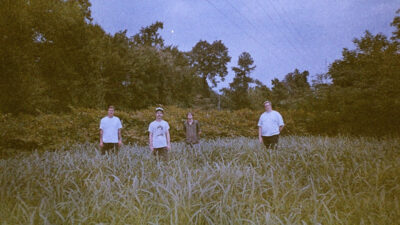
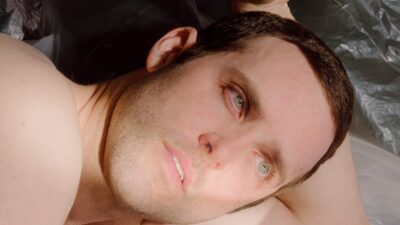

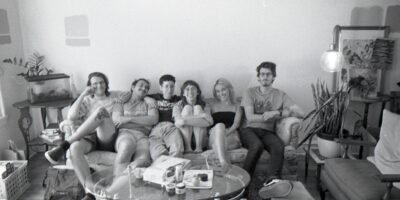
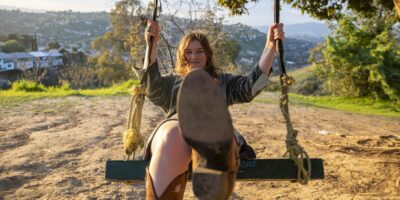

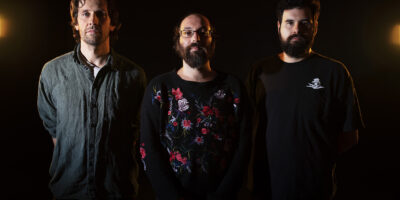

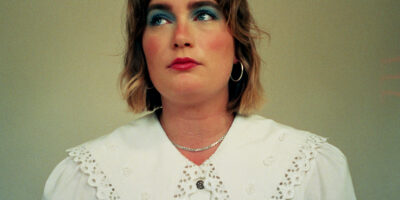
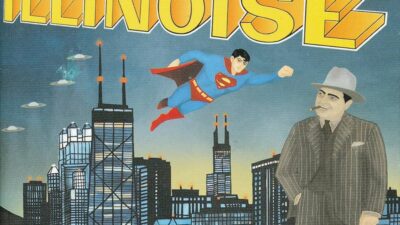
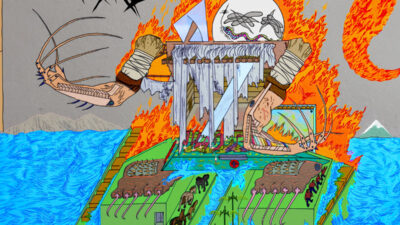
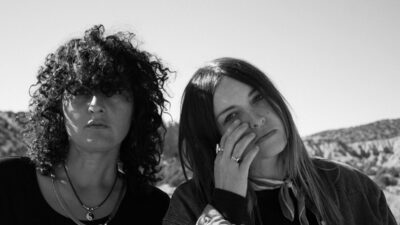

Comments